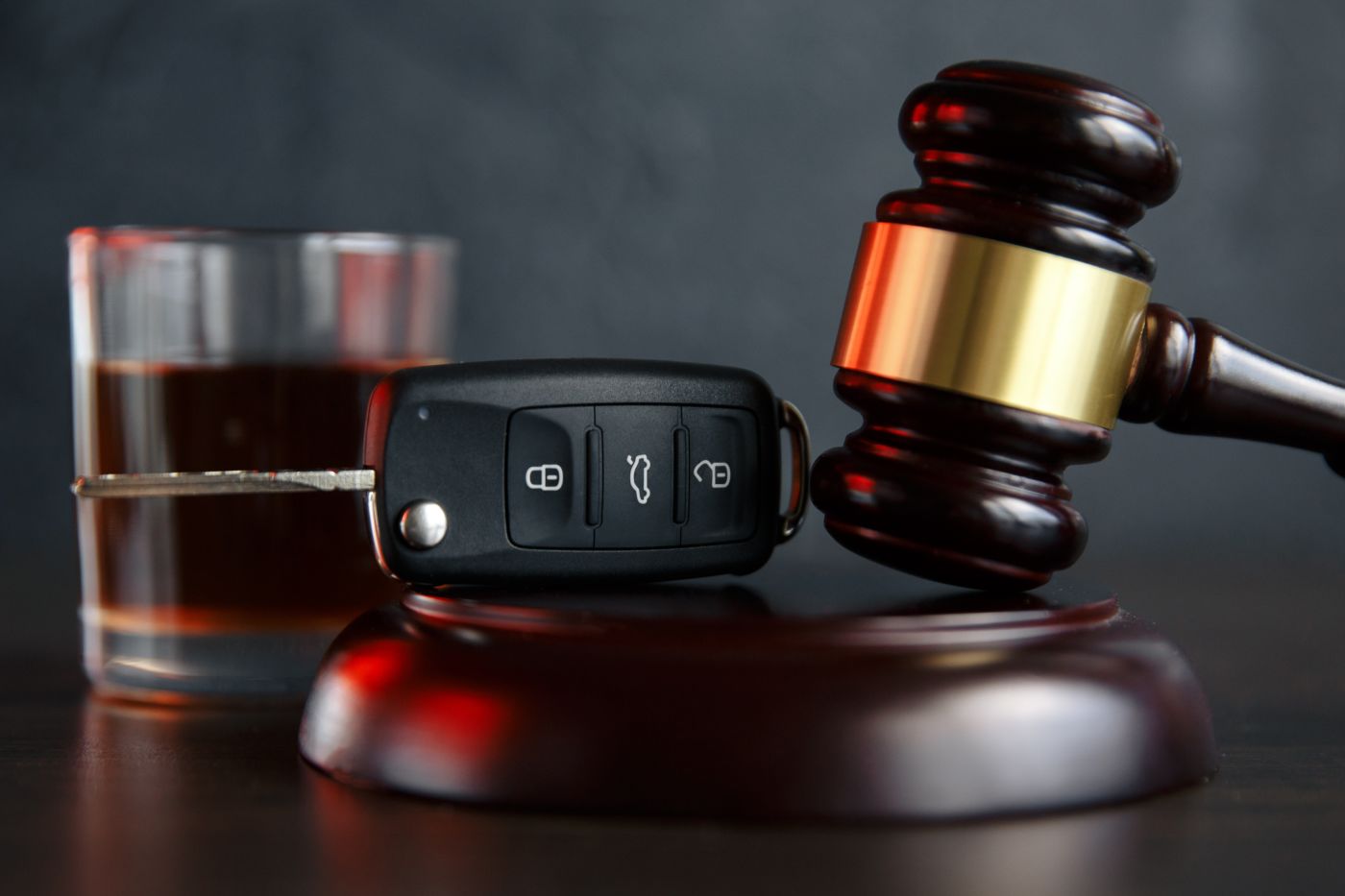
Facing a Driving Under the Influence (DUI) charge in Utah can be a challenging experience, with significant legal, financial, and personal consequences. Utah’s strict DUI laws, including a low blood alcohol concentration (BAC) limit of 0.05%, make it critical for defendants to mount a robust defense.
A successful defense requires a deep understanding of Utah’s laws, meticulous preparation, and strategic approaches tailored to the specifics of the case. Attorney Preston Day can help you understand key strategies for defending against DUI charges in Utah, offering knowledge of legal procedures, defense tactics, and practical steps to achieve the best possible outcome.
Contact Attorney Preston Day for assistance from a DUI attorney in Alpine, Utah, today.
A Breakdown of Utah’s DUI Laws
Utah has some of the strictest DUI laws in the United States. In 2019, the state lowered its BAC limit from 0.08% to 0.05%, making it easier for drivers to be charged with a DUI even after minimal alcohol consumption. A first-time DUI offense in Utah can result in penalties such as:
Up to 180 days in jail
Fines up to $1,470, plus court fees
License suspension for 120 days
Mandatory ignition interlock device installation
Substance abuse assessment and potential treatment
For repeat offenders or cases involving aggravating factors (e.g., high BAC, accidents, or minors in the vehicle), penalties escalate significantly, including longer jail time, higher fines, and extended license suspensions.
Utah also enforces an implied consent law, meaning drivers automatically consent to BAC testing when suspected of DUI. Refusal to submit to a test can lead to an automatic license suspension of 18 months for a first offense.
Understanding these laws is the foundation of a strong defense. A knowledgeable defense attorney can identify weaknesses in the prosecution’s case and leverage Utah’s legal nuances to the defendant’s advantage.
Key Defense Strategies
Here are some common key defense strategies:
Challenging the Legality of the Traffic Stop
One of the most effective defense strategies is to challenge the legality of the initial traffic stop. In Utah, law enforcement must have reasonable suspicion to pull over a driver. This could include observable traffic violations, such as speeding, swerving, or running a red light.
If the defense can prove that the officer lacked reasonable suspicion, any evidence obtained during the stop, such as BAC test results or field sobriety test observations, may be deemed inadmissible in court.
For example, if an officer stopped a driver solely based on a “hunch” or without documenting specific violations, the defense attorney could file a motion to suppress evidence. If granted, this motion could lead to the dismissal of the case due to insufficient evidence.
Inform your DUI attorney if you believe the legality of the stop can be challenged.
Questioning the Accuracy of Field Sobriety Tests
Field sobriety tests (FSTs) are commonly used by Utah law enforcement to establish probable cause for a DUI arrest. These tests include the Horizontal Gaze Nystagmus (HGN), Walk-and-Turn, and One-Leg Stand. However, FSTs aren’t foolproof and can be influenced by factors unrelated to alcohol consumption, such as:
Medical conditions (e.g., inner ear disorders, neurological issues)
Fatigue or stress
Uneven road surfaces or poor lighting
Improper administration by the officer
A skilled DUI attorney will scrutinize how the FSTs were conducted. For instance, if the officer failed to follow standardized protocols established by the National Highway Traffic Safety Administration (NHTSA), the results may be unreliable.
Video footage from the officer’s dashcam or body camera can be critical in demonstrating improper administration or environmental factors that skewed the results.
Disputing BAC Test Results
BAC testing, whether through a breathalyzer, blood, or urine test, is a cornerstone of DUI cases. However, these tests aren’t infallible. Defense attorneys can challenge BAC results by examining several factors:
Breathalyzer calibration and maintenance: Breathalyzers must be regularly calibrated and maintained to verify accuracy. If maintenance records show lapses or irregularities, the results may be deemed unreliable.
Timing of the test: BAC levels can rise or fall over time. If the test was administered long after the initial stop, the results may not accurately reflect the driver’s BAC at the time of driving.
Medical conditions or substances: Certain medical conditions, such as acid reflux or diabetes, can produce false positives on breathalyzer tests. Additionally, mouthwash, medications, or even certain foods can interfere with results.
Chain of custody for blood tests: For blood tests, the defense can investigate whether proper protocols were followed in collecting, storing, and analyzing the sample. Any break in the chain of custody could render the results inadmissible.
Expert witnesses, such as forensic toxicologists, can be instrumental in challenging BAC evidence. They can testify about the limitations of testing methods and provide scientific explanations for discrepancies.
Arguing Improper Police Conduct
Police misconduct or procedural errors can significantly weaken the prosecution’s case. Common issues include:
Failure to read Miranda Rights: If the defendant was not informed of their right to remain silent or request an attorney during custodial interrogation, any statements made may be inadmissible.
Coercion or misleading statements: If an officer coerced the defendant into taking a BAC test or made misleading statements about the consequences of refusal, the defense could argue that the test was involuntary.
Lack of probable cause for arrest: Even if the initial stop was legal, the officer must have probable cause to make an arrest. If the arrest was based on insufficient evidence, the defense can challenge its validity.
Body camera and dashcam footage, as well as witness testimonies, can help uncover police misconduct. A thorough review of all available evidence is essential to identify procedural violations.
Exploring Alternative Explanations for Impairment
Not all signs of impairment are due to alcohol or drugs. The defense can present alternative explanations for the defendant’s behavior or appearance, such as:
Fatigue: Lack of sleep can mimic symptoms of intoxication, such as slurred speech or difficulty concentrating.
Medications: Prescription or over-the-counter medications can cause side effects that resemble impairment.
Medical Conditions: Conditions like hypoglycemia, epilepsy, or allergies can affect coordination and cognitive function.
Medical records, expert testimony, and witness statements can support these arguments. For example, a doctor’s testimony confirming that the defendant was taking a medication with known side effects could cast doubt on the prosecution’s narrative.
Leveraging Utah’s Implied Consent Law
Utah’s implied consent law requires drivers to submit to BAC testing when lawfully requested. However, defendants retain certain rights, such as the right to request an independent test or to have a qualified person administer the test. If these rights were violated, the defense could argue that the test results are invalid.
Additionally, if the defendant refused a BAC test, the defense might argue that the refusal was justified due to confusion, fear, or lack of clear instructions from the officer. While refusal carries automatic penalties, it can sometimes limit the prosecution’s evidence, making it harder to prove impairment beyond a reasonable doubt.
Negotiating Plea Bargains
In some cases, negotiating a plea bargain may be the best strategy, especially if the evidence against the defendant is strong. In Utah, a DUI charge can sometimes be reduced to a lesser offense, such as “impaired driving” or a traffic violation. Impaired driving carries lighter penalties, including shorter license suspensions and no mandatory jail time for first offenses.
Plea bargains often depend on the strength of the defense’s case and the defendant’s criminal history. A skilled DUI attorney can negotiate with prosecutors to secure a favorable deal, minimizing the long-term impact of the charge.
Preparing for Administrative Hearings
In Utah, a DUI arrest triggers an administrative license suspension through the Driver License Division (DLD). Defendants have only 10 days from the date of arrest to request a hearing to contest the suspension. Failing to request a hearing results in an automatic suspension.
Preparing for the DLD hearing is a critical component of the defense strategy. The hearing focuses on issues such as the legality of the stop, the validity of the BAC test, and whether the officer followed proper procedures. A successful outcome at the hearing can prevent or shorten the license suspension, preserving the defendant’s driving privileges.
Contact a DUI Attorney
Defending against DUI charges in Utah requires a multifaceted approach that combines legal experience, strategic planning, and proactive measures. Hiring an experienced DUI attorney, preparing for administrative hearings, and taking practical steps to support the case are critical to achieving a successful outcome. Whether you’re in Salt Lake County or Utah County, contact Attorney Preston Day in Alpine, Utah, for assistance with your case today.


